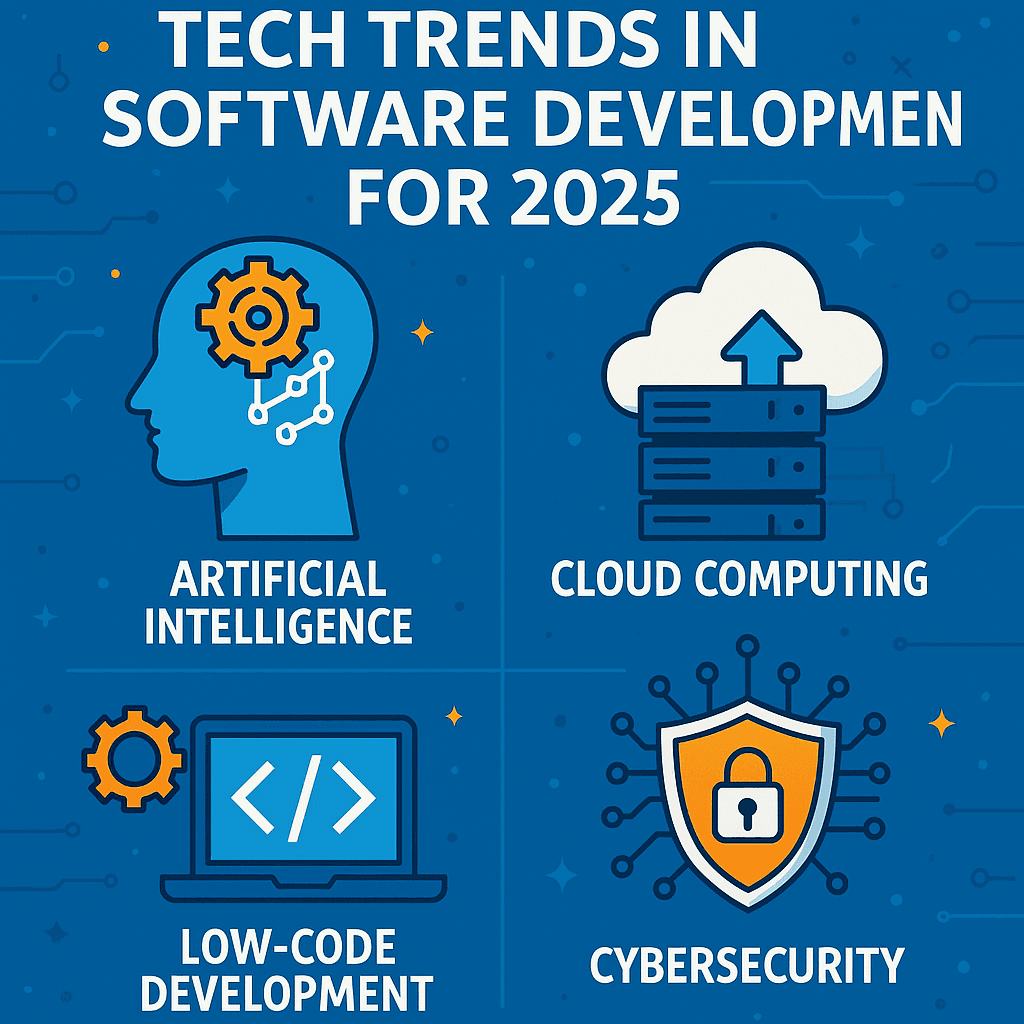
Top Software Development Trends for 2025
Top Software Development Trends for 2025

Top Software Development Trends for 2025 🚀
The technology landscape is advancing at an unprecedented pace, and 2025 will be no exception. To remain competitive, businesses must adapt to emerging innovations that will redefine the way software is developed, deployed, and utilized. Here’s a closer look at the top software development trends shaping the future:
1. AI & Machine Learning
Artificial Intelligence (AI) and Machine Learning (ML) will continue transforming industries by enhancing automation, predictive analytics, and decision-making processes. AI-driven development tools will enable developers to write more efficient code, detect errors faster, and personalize user experiences at scale.
2. Cloud & Edge Computing
While cloud computing remains dominant, edge computing is gaining traction by allowing data processing closer to the source. This reduces latency, enhances performance, and enables real-time decision-making, particularly in IoT applications and mission-critical systems.
3. Cloud-Native Development
Modern applications are being designed with cloud-native architectures, leveraging microservices, containers, and Kubernetes for enhanced scalability, flexibility, and resilience. This shift reduces reliance on traditional infrastructure and ensures seamless integration with cloud environments.
4. Low-Code & No-Code Platforms
The rise of low-code and no-code platforms is democratizing software development, allowing non-technical users to create applications with minimal coding knowledge. This accelerates digital transformation, reduces development time, and empowers businesses to innovate faster.
5. DevSecOps & Cybersecurity
Security is becoming a fundamental aspect of the development lifecycle. DevSecOps integrates security practices into DevOps processes, ensuring that applications are secure by design. This approach helps mitigate cyber threats and enhances compliance with security standards.
6. Blockchain Beyond Cryptocurrency
Blockchain technology is extending beyond cryptocurrencies to enable secure transactions, smart contracts, decentralized applications (DApps), and digital identity verification. Industries like finance, healthcare, and supply chain management are leveraging blockchain for enhanced transparency and security.
7. Cross-Platform Development & UX Optimization
As users demand seamless experiences across devices, cross-platform frameworks like Flutter and React Native are becoming essential. These technologies enable developers to build apps that work seamlessly on multiple platforms, reducing development costs and effort.
8. Robotic Process Automation (RPA)
Automation is revolutionizing business operations, and RPA is at the forefront. By automating repetitive tasks, businesses can improve efficiency, reduce human error, and focus on higher-value activities. RPA is particularly beneficial for finance, customer service, and HR processes.
9. The Metaverse & Extended Reality (XR)
Virtual Reality (VR), Augmented Reality (AR), and Mixed Reality (MR) are driving immersive experiences across industries. From virtual collaboration to interactive training and enhanced customer engagement, the metaverse is unlocking new possibilities in digital interaction.
10. Sustainable Software Development
With a growing emphasis on environmental responsibility, Green IT practices are gaining momentum. Developers are focusing on energy-efficient software solutions, optimizing resource usage, and reducing the carbon footprint of digital infrastructure.
Conclusion
The future of software development in 2025 is defined by innovation, automation, and security. Businesses that embrace these trends will be better positioned to drive digital transformation, enhance user experiences, and stay ahead in an evolving market. Which of these trends do you see having the biggest impact on your industry?
Let’s discuss!

